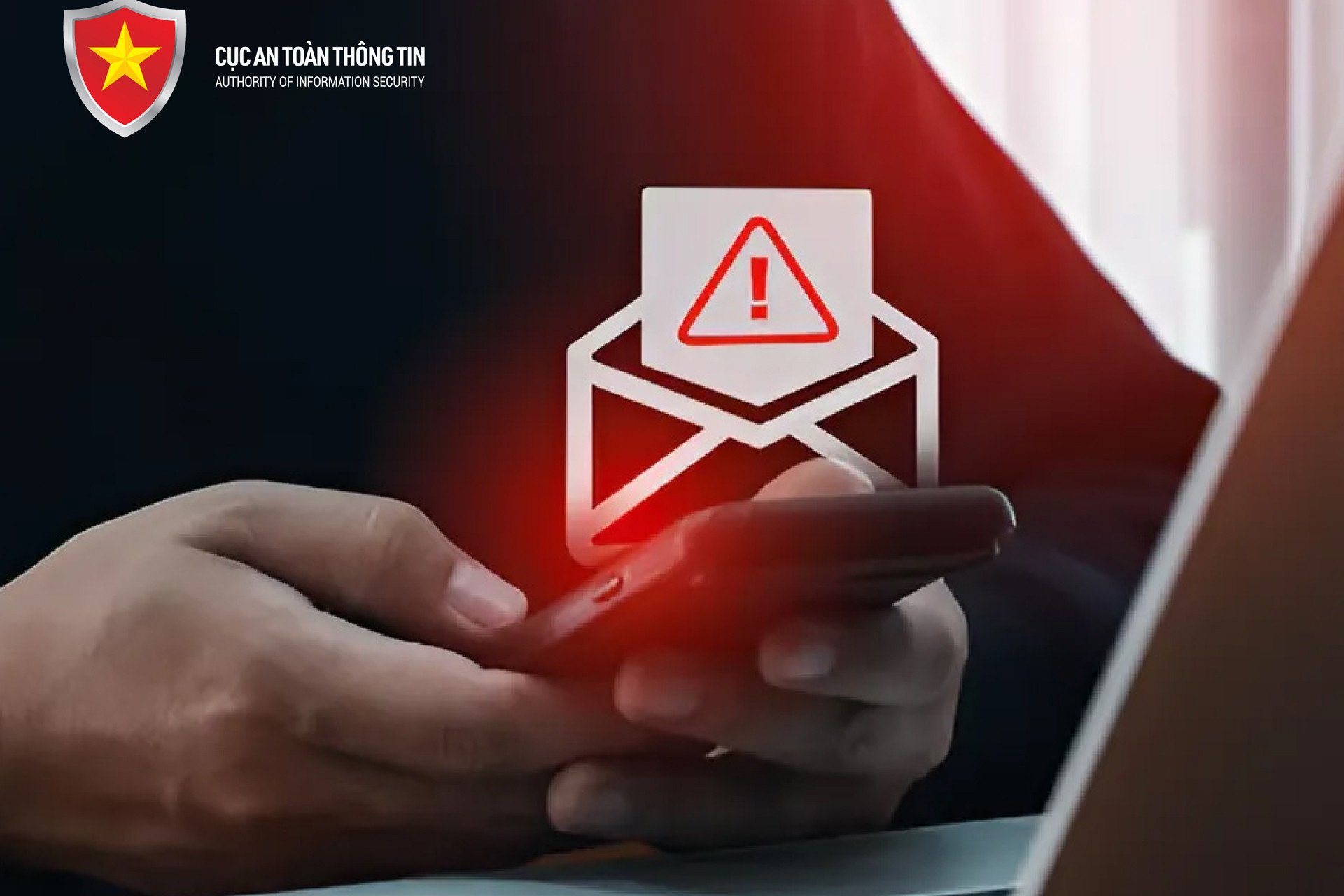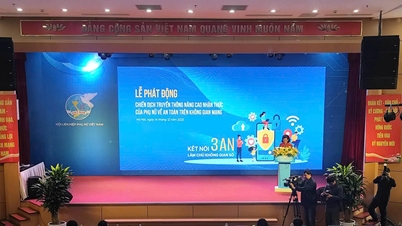Impersonation scams continue to be a major issue online. The Information Security Department ( Ministry of Information and Communications ) has just warned domestic organizations and individuals to be vigilant against scams impersonating the National Cyber Security Center, the Customs Department, and Shopee.
In its latest "Weekly News" on prominent online fraud situations, in addition to warning about three common scams in Vietnam's cyberspace, the Information Security Department (Ministry of Information and Communications) also advises individuals, organizations, and businesses in the country to increase vigilance against the rampant impersonation scams in the digital environment:
Scammers impersonating the Customs Department send fraudulent emails.
According to the Information Security Department (Ministry of Information and Communications), the Singapore Customs Department recently issued a warning about a scam involving impersonation, targeting people via email with misleading content to steal personal information and assets.
The perpetrators' tactic was to create fake email messages using the Singapore Customs logo, informing people that their tax refund applications had been approved and processed, and asking them to access the attached link to verify information and transfer money.

When noticing suspicious signs, people should quickly report them to the authorities so that timely investigations can be conducted and fraudulent activities can be prevented. (Illustration: NCSC)
To increase credibility, the fake email messages even include full details such as the amount of money to be received, the time, the transaction method, the tax identification number, and promise that people will receive the money within 5 to 10 days.
When people click on the link sent by scammers in fake email messages, they are asked to provide personal and bank information to proceed with tax refund procedures. After obtaining the victim's information, the perpetrators will use this information to carry out other fraudulent activities.
The Department of Information Security advises people to be vigilant when receiving email messages with similar content. Individuals and organizations should verify the information; do not follow the instructions, do not access strange links, and do not provide personal information.
Impersonating the National Cyber Security Center to commit fraud.
The Australian Cyber Security Centre (ACSC) recently warned about phishing scams that target victims via email, attempting to trick them into providing personal information, banking details, or downloading malicious applications.
Specifically, the scammers send fake emails to victims, claiming that one of their online accounts has suspicious activity related to fraud, and threatening the victims with fraud charges if they do not respond promptly.

The scammer then asks the victim to click on a link attached in the message to verify the information. After clicking on the link, the victim is redirected to a fake ACSC website.
On the fake website, victims are asked to provide personal and bank information to prove that their account is not involved in fraudulent activities. In some cases, in order to steal sensitive data and information, the perpetrators even ask victims to download fake software.
The Cybersecurity Department advises people to verify the content of messages through reputable news sites or official portals; not to access links or download unfamiliar applications; and not to provide personal information, bank information, or transfer money without verification.
Scammers impersonating Shopee employees
According to the Information Security Department, a scam group recently defrauded a Singaporean citizen of SGD 100,000, equivalent to over VND 1.8 billion, by impersonating Shopee employees and requesting payment for goods insurance.
Regarding the modus operandi, the perpetrators impersonate Shopee's customer service department, calling to inform victims that they haven't paid their goods insurance fees. They then forward the victim's call to someone claiming to be a bank employee.

During the conversation, the person claiming to be a bank employee stated that the victim was suspected of being involved in a money laundering case and requested the victim transfer funds to the Monetary Authority of Singapore (MAS) for verification.
After making the accusation, the call redirects the victim to someone claiming to be an MAS officer, instructing the victim to transfer money to assist in the investigation and verification of the accusations made by the perpetrators.
The Cybersecurity Department recommends that people do not follow the instructions of strangers, and do not provide personal information or transfer money without verifying the information and identity of the person.
When detecting signs of fraud, people should quickly report the caller's phone number to the authorities so that timely investigation and prevention of the fraudulent activity can be carried out.

Source: https://vietnamnet.vn/gia-mao-trung-tam-an-ninh-mang-cuc-hai-quan-de-lua-dao-chiem-doat-tai-san-2368953.html


































































































Comment (0)